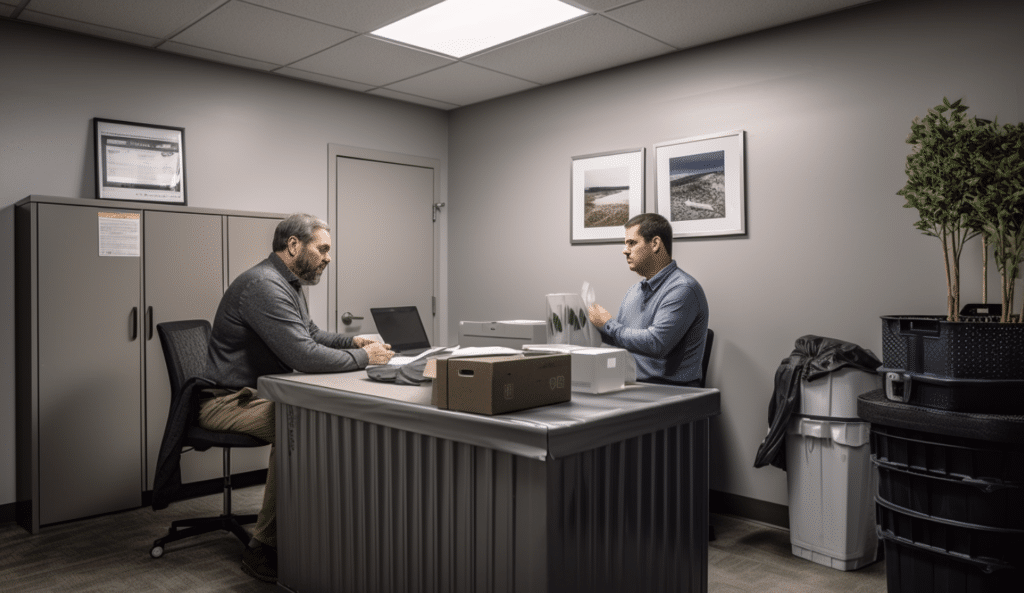A dumpster rental business is like any other business. Before you can operate, you need to comply with a few regulations, especially since there may be a chance that you will handle hazardous material. A dumpster rental business permit makes your company a legal entity. However, the application process and the regulations may change from one area to another.
Even if you are using your residential area for setting up your business, the city or county may still require you to obtain a business permit. Though opening a company may be challenging, you should take this step seriously.
Types of Permits and Regulations
Commercial Driver’s License
You need a commercial driver’s license (CDL) if you plan to use a truck to haul the dumpster. Driving a roll-off truck alone may also require a CDL from your state.
It is one of the licenses that clients look for in a dumpster rental business. The CDL assures your clients that you can operate a large or heavy vehicle, like a dump truck.
It can also be an advantage for your business and make you stand out. When you possess a CDL, you can cater to the needs of a client who requires large dumpster sizes or complex waste disposal requirements.
Dumpster Permit
Large dumpsters may block a sidewalk or a part of the street. Your city will require a dumpster permit if the dumpster occupies a public space for the whole rental duration. Depending on your contract, you or your client may face hefty fines if a dumpster permit is not applied.
If your client places the dumpster on their property, you may not need to apply for a dumpster permit. However, the dumpster will be the client’s responsibility.
As a dumpster rental business, you should know when you should or should not apply for a dumpster permit. The regulations will differ from place to place, and you must inform your client whether it needs one.
Business License
Your dumpster rental or waste management business will not run if you don’t obtain a business license from your city or county. Registering your business makes it official. It is necessary to proceed with other steps to set up your business, such as applying for a bank account, insurance, and paying taxes.
A business license also ensures that you comply with the regulations enforced by your local government. Like CDL, having a business license puts confidence in your clients and that you adhere to professional standards.
Health and Safety Compliance Permit
Since a dumpster business involves waste, you need to ensure the safety of your employees and clients. It is a regulatory requirement to ensure that your company follows safety protocol and uses safety gear during hauling.
The safety compliance permit also ensures that your business correctly handles and disposes of hazardous waste.
Insurance Coverage
A dumpster rental faces the risks of accidents, damage to equipment, and injuries. Because of this, insurance coverage is essential in starting a business.
It can be in the form of general liability insurance. This type of insurance covers medical expenses, legal fees, and payment for damages. It may seem like a cost for some, but insurance coverage may save you from an unexpected expense.
Obtaining Permits
Local governments issue business licenses and dumpster permits. They may require you to apply for applying for additional ones if you handle debris removal or offer other services. The requirements may differ from every local government, so check with the licensing office where you plan to register your dumpster rental business.
Some accept online applications, but local governments also require an in-person application. Some documents you need to prepare are proof of insurance, safety policies and procedures, and bank registration.
Aside from these documents, some local governments also require submitting a business plan. It should include your business structure, how many employees you have, the training programs they should attend, and, most significantly, the waste management procedure.
It goes the same for applying for a dumpster permit. Before the hauling starts, you should obtain one for the area where you or your client will place the dumpster.
Complying With Regulations
As a service provider, you need to know the updates about waste management in your area. These stringent regulations and ignorance will not help you pay hefty fines and other fees. In addition, being unable to comply with rules may harm your business’ reputation.
Aside from obtaining different permits, you should also know how to handle different types of waste since they also have different disposal manners. Not all waste should go to landfills. You should know how to classify garbage and segregate the recyclable ones. This type of trash should go to a recycling facility, not a dump.
It goes the same with disposing of hazardous materials. Paints, household cleaners, and materials that contain asbestos and the like should be handled and disposed of carefully.

Common Issues and Solutions
One of the most common issues dumpster rental businesses faces is the complexity of applying for business permits. A dumpster rental business requires many permits; missing one may bring you fines and fees. When applying for a business permit, it can be helpful to create a checklist to ensure that you will get everything.
Lack of information is also a common problem in dumpster rentals and almost all new businesses. Some regulations may be challenging to understand, and some requirements may be hard to navigate. To avoid being overwhelmed, you may consult professionals from the local government or someone in the same line of business.
It can also be a challenge to keep up with the waste management practices of your area. Your protocols should align with the local government. Train your personnel about sorting, handling tools and equipment, and operating large vehicles. Not only can it keep your business following the regulations, but doing this may also keep everyone doing their job safely.
Conclusion
A dumpster rental or waste management business is a rewarding one. Dumpsters are necessary in all communities, so you are sure that your business will continue as long as people need to remove their trash. However, to ensure that things will go smoothly and succeed, you must comply with local regulations, starting with the dumpster rental business permit.

